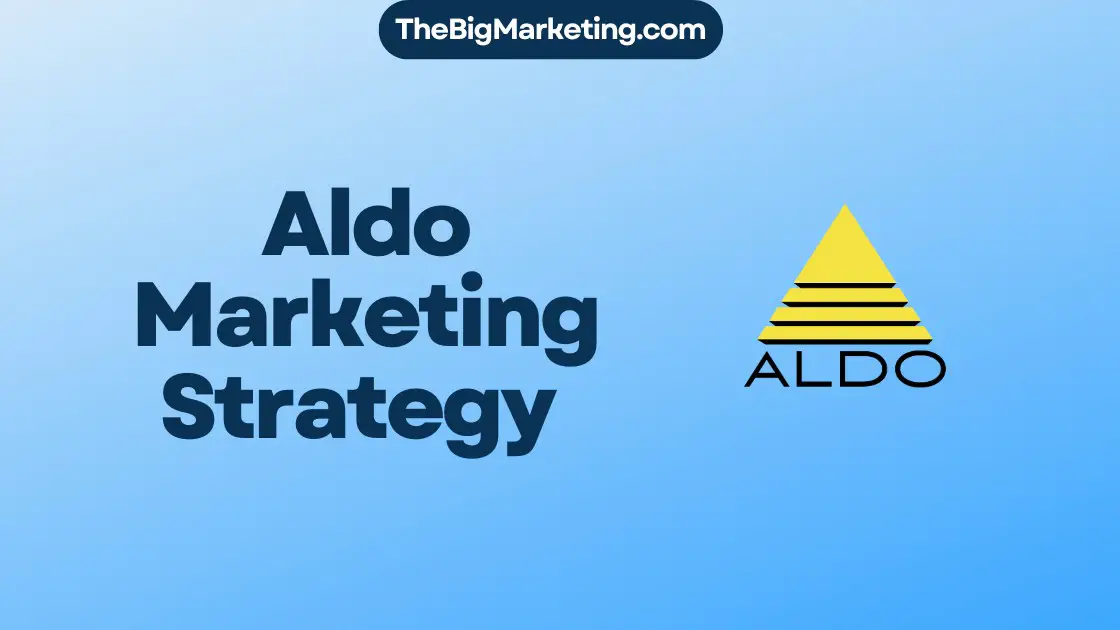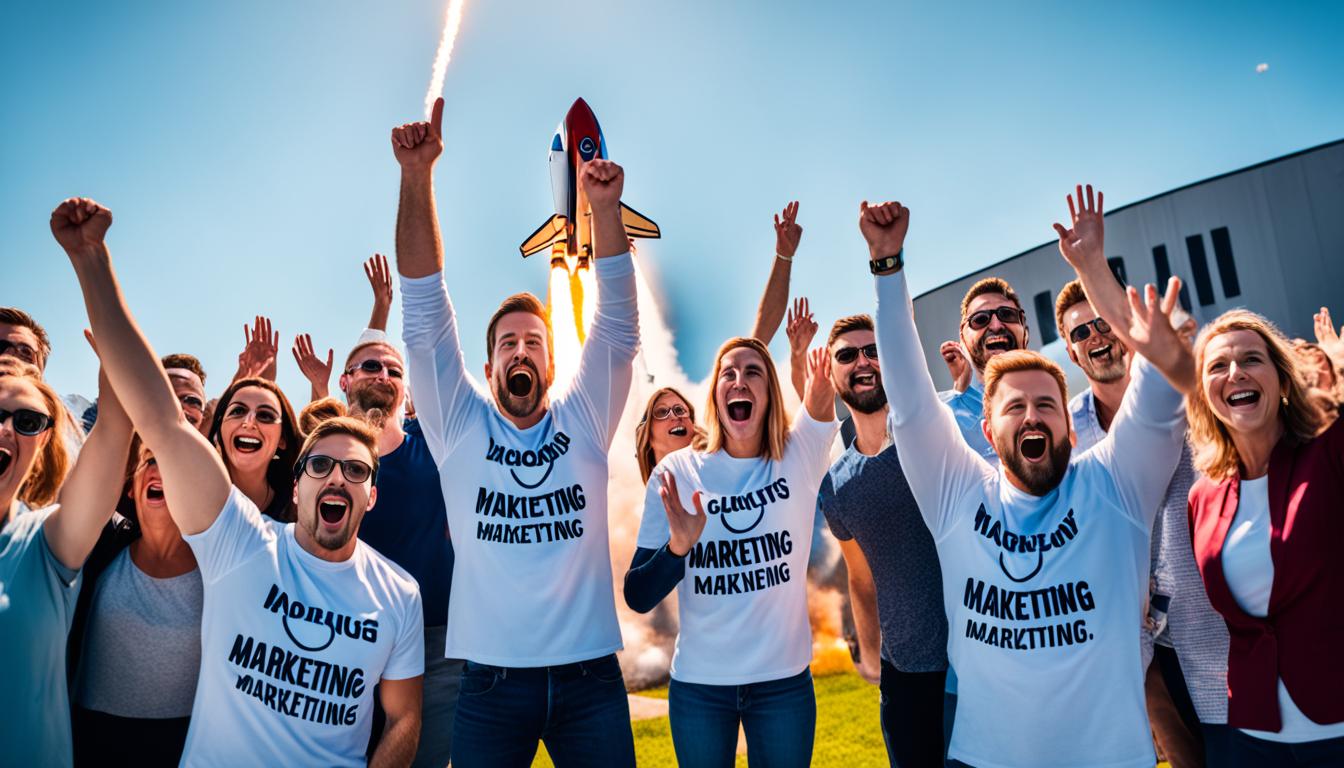In 2024, the travel and hospitality industry is set to make a remarkable comeback after encountering unprecedented challenges. According to Skyscanner’s Travel Trends 2024 report, a staggering 85% of US travelers have intentions to maintain or increase their number of trips abroad compared to the previous year. In this dynamic scenario, it becomes imperative for hospitality businesses to craft robust marketing campaigns to thrive and seize the upcoming opportunities. This comprehensive guide will delve into the latest trends, proven tactics, and inspiring examples in hospitality marketing to equip your business for success.
Key Takeaways:
- A resurgence is expected in the travel and hospitality industry in 2024.
- 85% of US travelers plan to maintain or increase their trips abroad in 2024.
- Hospitality businesses must focus on strong marketing campaigns to thrive.
- This guide covers the latest trends, proven tactics, and inspiring examples in hospitality marketing.
The Current State of the Hospitality Industry in 2024
The hospitality industry is experiencing a remarkable rebound as travelers eagerly anticipate the opportunity to embark on new adventures once again. However, the lingering aftermath of the pandemic has undeniably influenced traveler expectations and preferences, creating a shift in the landscape of the travel industry. To navigate these changes successfully, travel marketers must prioritize safety, embrace flexibility, and harness the power of user-generated content.
Post-pandemic recovery has significantly altered traveler expectations, with safety emerging as the top priority. Travelers are seeking destinations, accommodations, and experiences that prioritize health and safety measures. Hotels and other hospitality establishments must proactively implement stringent hygiene protocols, such as enhanced cleaning practices and contactless services, to instill confidence in potential customers. Communicating these measures through various marketing channels is essential to assuage concerns and attract cautious travelers.
Flexibility is another key aspect that travelers are now prioritizing. The pandemic has taught us that plans can change in an instant, leading to increased emphasis on flexible booking options and cancellation policies. Providing flexible options, such as refundable rates and no-change fees, can give travelers peace of mind and increase the likelihood of bookings. Travel marketers should highlight these flexible policies in their marketing campaigns to cater to the evolving needs of travelers in 2024.
In addition to safety and flexibility, the influence of user-generated content has grown exponentially. Travelers now heavily rely on reviews, recommendations, and personal experiences shared by other travelers to make informed decisions. To capitalize on this trend, hospitality businesses should encourage guests to leave reviews and share their experiences on platforms like TripAdvisor or social media. Additionally, featuring user-generated content, such as real guest photos and testimonials, in marketing materials can provide social proof and build trust with potential customers.
Traveler Expectations for the Future
The future of the hospitality industry in 2024 and beyond will be shaped by the changing expectations of travelers. It is imperative for travel marketers to stay attuned to these expectations and adapt their strategies accordingly. Here are some key traveler expectations that are likely to have a significant impact:
- Seamless and contactless experiences: Travelers anticipate technology-driven solutions that minimize physical contact during their journey, from touchless check-ins to digital concierge services.
- Personalization and customization: Travelers expect tailored experiences that cater to their unique preferences and interests. Hospitality businesses can leverage customer data and advanced analytics to create personalized marketing campaigns and offers.
- Sustainable and responsible practices: Travelers are increasingly conscious of sustainability and expect hotels and other businesses to adopt eco-friendly practices. Incorporating sustainable initiatives in marketing messages can attract environmentally conscious travelers.
- Diversification of experiences: Beyond traditional accommodations, travelers seek unique and immersive experiences. Creating partnerships with local attractions or offering curated itineraries can cater to this desire for authentic, off-the-beaten-path experiences.
Recovering Travel Industry Statistics
| Statistic | Percentage Increase |
|---|---|
| International travel bookings | 35% |
| Domestic travel bookings | 45% |
| Travelers willing to pay more for enhanced safety measures | 62% |
| Market growth in the luxury travel segment | 28% |
| Online travel booking market share | 65% |
These evolving traveler expectations and the promising recovery of the travel industry present both opportunities and challenges for hospitality businesses in 2024. By understanding and responding to these changing dynamics, travel marketers can position themselves strategically for success in the post-pandemic landscape.
Personalization in Hospitality Marketing
Personalization plays a pivotal role in modern hospitality marketing. By leveraging customer data, businesses can gain valuable insights into their preferences and behaviors, allowing for targeted and tailored marketing strategies. Personalization enhances the customer experience by delivering relevant messages, customized offers, and personalized assistance.
To effectively implement personalization, hotels and travel companies collect and analyze customer data. This data includes demographic information, past purchases, preferences, and browsing behavior. By understanding their customers at a deeper level, businesses can create highly targeted marketing campaigns that resonate with their audience.
Customer data allows businesses to segment their audience based on various criteria, such as travel preferences, destinations of interest, budget, and more. These segments can be used to send personalized emails, deliver targeted advertisements, and provide customized recommendations to individual customers.
To further enhance personalization, the integration of AI and chatbots can revolutionize the customer experience. AI-powered algorithms can analyze vast amounts of customer data in real-time, enabling businesses to deliver highly personalized recommendations for travel destinations, accommodations, and experiences. Chatbots, on the other hand, can engage with customers in real-time, providing instant support and personalized assistance throughout their journey.
By embracing personalization, hospitality businesses can create a more memorable and tailored experience for their customers. This personal touch builds trust and loyalty, increasing the likelihood of repeat bookings and positive word-of-mouth recommendations.
Ultimately, personalization is key in hospitality marketing, as it allows businesses to connect with their customers on a deeper level and deliver a unique and customized experience. By harnessing the power of customer data, targeting specific segments, and leveraging AI and chatbots, hotels and travel companies can differentiate themselves in a competitive market and foster long-term customer relationships.
Benefits of Personalization in Hospitality Marketing:
- Enhanced customer experience through tailored messaging and offers
- Increased customer loyalty and repeat bookings
- Improved customer satisfaction and positive reviews
- Higher conversion rates and revenue
- Efficient use of marketing resources by targeting specific segments
- Real-time assistance and recommendations through AI and chatbots
Examples of Successful Personalization in Hospitality:
| Company | Personalization Strategy |
|---|---|
| Marriott International | Personalized email campaigns based on past stays and preferences |
| Hilton | Customized loyalty program offering tailored rewards and room preferences |
| Booking.com | Dynamic pricing and targeted offers based on browsing behavior and demand |
These examples demonstrate the power of personalization in hospitality marketing and its ability to create unique and memorable experiences for customers. As the industry continues to evolve, personalization will remain an essential strategy for hotels and travel companies seeking to stand out and thrive in a competitive market.
Technology in Travel Marketing
Technology has become an integral part of the travel industry, revolutionizing the way travelers plan and experience their trips. In today’s tech-driven world, it is crucial for hospitality businesses to leverage the power of technology to effectively market to their target audience and stay competitive in the market.
One of the key aspects of technology-driven travel marketing is the development of mobile-friendly websites and apps. As more and more travelers rely on their smartphones to research and book their trips, having a mobile-friendly online presence is essential. Responsive websites and user-friendly apps provide a seamless browsing and booking experience, ensuring that potential customers can easily access information and make reservations on the go.
Moreover, integrating online booking engines on websites is another essential step for travel businesses. Online booking engines simplify the reservation process, allowing travelers to make instant bookings and payments. This not only enhances convenience for customers but also streamlines operations for hospitality businesses, resulting in increased efficiency and revenue. With a secure and user-friendly online booking system in place, businesses can attract tech-savvy travelers and provide them with a seamless booking experience.
The Role of Blockchain Technology
Another emerging technology with immense potential in the travel industry is blockchain. Blockchain technology can provide secure and transparent transactions, ensuring customer trust and data privacy. By implementing blockchain-powered solutions, hospitality businesses can offer secure payment options and protect sensitive customer information. Embracing blockchain can enhance the overall travel experience by eliminating intermediaries, reducing costs, and increasing trust between travelers and service providers.
The Benefits of Embracing Technology
Embracing technology in travel marketing offers numerous benefits for hospitality businesses. First and foremost, it allows them to reach and engage with tech-savvy travelers who rely heavily on online platforms and smartphone apps. By providing seamless and user-friendly digital experiences, businesses can attract and retain customers in a highly competitive landscape.
In addition, technology-driven travel marketing enables businesses to gather valuable data and insights on customer behaviors and preferences. This data can be used to personalize marketing messages, offers, and experiences, creating a more targeted and relevant approach to customer engagement. Personalization is a key factor in building customer loyalty and driving repeat bookings, and technology plays a vital role in enabling this level of customization.
| Benefits of Technology in Travel Marketing |
|---|
| Enhanced reach and engagement with tech-savvy travelers |
| Improved customer experiences through personalization |
| Streamlined booking processes and increased operational efficiency |
| Enhanced data security and customer trust |
In conclusion, technology has become an essential component of travel marketing. By developing mobile-friendly websites and apps, integrating online booking engines, and exploring the use of blockchain technology, hospitality businesses can effectively cater to the needs and preferences of modern travelers. Embracing technology-driven travel marketing not only enhances customer experiences but also drives business growth in an increasingly digital landscape.
Online Marketing Tactics in Hospitality
Online marketing is an indispensable strategy for hospitality businesses looking to enhance brand awareness and connect with potential customers. By utilizing a combination of strategic techniques, businesses can effectively leverage digital platforms to expand their reach and engage with their target audience. In this section, we’ll explore some key online marketing tactics that are essential for success in the hospitality industry.
Content Marketing
Content marketing plays a crucial role in capturing the attention of your target audience and establishing your brand as an authority in the industry. By creating high-quality, informative, and engaging content such as blog posts, videos, and guides, you can provide valuable insights and solutions to potential customers. This not only helps to build brand credibility but also drives organic traffic to your website, ultimately leading to increased bookings and revenue.
Search Engine Optimization (SEO)
Implementing effective SEO strategies is essential for improving your website’s visibility and ranking on search engine results pages. By conducting thorough keyword research and crafting relevant, optimized content, you can attract organic traffic to your website. Additionally, optimizing technical aspects of your website such as page speed, mobile responsiveness, and user experience can further enhance your search engine rankings and attract qualified leads.
Organic Social Media
Having a strong presence on popular social media platforms like Instagram, TikTok, and Facebook is crucial for connecting with your target audience on a more personal level. Organic social media strategies involve creating and sharing engaging posts, stories, and videos that resonate with your audience’s interests and travel aspirations. By actively engaging with your followers, responding to comments, and participating in relevant conversations, you can build a loyal following and drive brand loyalty.
Influencer Marketing
Influencer marketing has become a powerful tool in the hospitality industry, allowing businesses to tap into the vast networks and influence of popular travel influencers. Collaborating with influencers who align with your brand values and target audience can help expose your business to a wider audience and generate authentic, engaging content. Whether it’s through sponsored posts, destination reviews, or experiential campaigns, influencer marketing can significantly amplify your brand’s reach and influence purchasing decisions.
| Benefits of Online Marketing Tactics in Hospitality |
|---|
| Increased brand awareness and visibility |
| Improved website traffic and lead generation |
| Enhanced credibility and authority in the industry |
| Engagement with target audience in a more personal way |
| Opportunity to showcase unique offerings and experiences |
| Stronger customer loyalty and increased brand advocacy |
Paid Advertising in Hospitality Marketing
When it comes to hospitality marketing, paid advertising plays a crucial role in reaching target audiences and boosting brand visibility. By leveraging various paid advertising channels, businesses can effectively promote their offerings and attract potential guests. In this section, we will explore Search Advertising, Paid Social Media, and Connected TV as the key components of a successful paid advertising strategy in the hospitality industry.
Search Advertising: Targeted and Result-Driven
Search advertising on platforms like Google continues to be a popular choice for hospitality marketers. It allows businesses to set specific budgets, target relevant keywords and demographics, and track performance metrics. With Search Advertising, hotels and resorts can ensure their ads appear prominently when potential guests search for specific destinations, accommodations, or travel-related services. This targeted approach maximizes visibility and drives qualified traffic to their websites.
Paid Social Media: Reaching a Specific Audience
Paid social media marketing on platforms like Facebook and Instagram provides hospitality businesses with an effective way to promote their offerings to a specific audience. With robust targeting capabilities, businesses can reach potential guests based on their demographics, interests, and behaviors. By creating visually appealing and engaging ads, hotels and resorts can showcase their unique experiences and amenities, capturing the attention of their target audience and driving conversions.
Connected TV: Captivating Visual Experiences
The rise of over-the-top (OTT) platforms and connected TV has opened up new opportunities for hospitality marketers to reach a large number of people while delivering captivating and immersive visuals. Connected TV advertising allows hotels and resorts to showcase their properties through high-quality videos, stunning visuals, and interactive content. By leveraging this medium, they can inspire travelers, spark wanderlust, and create a memorable brand experience.
With the right mix of Search Advertising, Paid Social Media, and Connected TV, hospitality businesses can enhance their reach, engage with qualified leads, and drive bookings. However, it’s important to develop a comprehensive strategy that aligns with the target audience, budget, and marketing objectives. By continuously monitoring and optimizing campaigns, hotels and resorts can ensure their paid advertising efforts yield the desired results.
| Advantages | Search Advertising | Paid Social Media | Connected TV |
|---|---|---|---|
| Targeted Reach | Allows precise targeting based on relevant keywords and demographics | Enables targeting based on demographics, interests, and behaviors | Reaches a large number of people through captivating visuals |
| Measurable Results | Provides detailed performance metrics to track ROI | Offers insights into engagement, conversions, and audience demographics | Allows tracking of impressions, clicks, and view-through rates |
| Enhanced Visibility | Places ads prominently on search engine results pages | Increases brand visibility through compelling ad placements on social media | Delivers captivating visuals on high-quality connected TV platforms |
| Engaging Content | Allows for dynamic and targeted ad copy with call-to-actions | Enables the use of visually appealing images, videos, and carousels | Delivers immersive and interactive video experiences |
Email Marketing and Customer Reviews
Email marketing continues to be a valuable tool for hospitality businesses looking to cultivate customer loyalty and drive bookings. By leveraging personalized offers, travel tips, and updates, hotels can effectively engage with their audience and nurture leads. This targeted approach helps build trust and keeps customers informed about the latest promotions and opportunities. With the right email marketing strategy in place, hotels can create meaningful connections and encourage repeat bookings.
The Power of Personalization
One of the key advantages of email marketing is its ability to deliver personalized content. By segmenting your customer database and tailoring messages to specific demographics or preferences, you can ensure that your emails resonate with recipients. Personalization can include addressing customers by name, recommending relevant destinations or experiences based on their past bookings, and providing customized offers and discounts. Putting in the effort to understand your audience and personalize your email campaigns will help you stand out and build stronger relationships with your guests.
Customer Reviews and Testimonials
In the hospitality industry, customer reviews and testimonials play a critical role in influencing potential guests. Travelers often rely on positive feedback from previous visitors when making their booking decisions. By showcasing genuine reviews and testimonials on your website and in your email marketing campaigns, you can build trust and credibility with your audience. Encourage guests to leave reviews by providing incentives, such as discounts or loyalty points. Including snippets of glowing reviews in your emails can help sway undecided travelers and instill confidence in your brand.
Promoting Customer Loyalty
Implementing customer loyalty programs is another effective way to enhance the customer experience and foster loyalty. By offering exclusive benefits, rewards, and personalized perks to loyal customers, you can encourage repeat bookings and increase customer retention. Incorporate your loyalty program into your email marketing strategy by sending tailored offers and updates to loyal members. Highlight the benefits they can enjoy as part of the program, such as room upgrades, early check-in, or access to exclusive events. Making your guests feel valued and appreciated will not only drive repeat business but also generate positive word-of-mouth referrals.
Augmented Reality and Virtual Reality in Travel Marketing
Augmented reality (AR) and virtual reality (VR) have revolutionized the way travelers experience destinations and accommodations. By incorporating AR and VR into marketing materials, hospitality businesses can provide interactive and immersive experiences that captivate potential customers.
AR enables travelers to explore destinations through interactive maps and historical overlays. They can visualize the layout of a city, discover nearby attractions, and even learn about the historical significance of landmarks. AR brings the destination to life, offering a unique and engaging way to plan and explore.
VR takes travel marketing to the next level by offering virtual tours and experiences. It allows potential customers to virtually step into hotels, resorts, and tourist attractions, giving them a taste of what they can expect. Whether it’s exploring a hotel room or taking a virtual stroll on a white sandy beach, VR enables travelers to make more informed decisions and feel a sense of connection before booking.
By incorporating these technologies into their marketing strategies, hotels and travel businesses can create unforgettable experiences that drive customer engagement and boost bookings. Travelers crave interactive experiences and a deeper understanding of their chosen destinations, and AR and VR deliver precisely that.
Advantages of Augmented Reality and Virtual Reality in Travel Marketing
AR and VR offer numerous advantages for hospitality businesses looking to enhance their marketing efforts:
- Enhanced Visualization: AR and VR allow travelers to visually explore destinations and accommodations, making it easier to make travel decisions.
- Improved Engagement: The interactive nature of AR and VR captures travelers’ attention and keeps them engaged throughout the marketing process.
- Inspires Wanderlust: AR and VR provide immersive experiences that ignite travelers’ desire to explore new places and create lasting memories.
- Competitive Edge: By embracing these emerging technologies, hotels and travel businesses differentiate themselves from competitors, attracting tech-savvy travelers.
- Storytelling Opportunities: AR and VR offer unique storytelling opportunities, allowing businesses to showcase their brand personality and values.
Case Study: Marriott International
Marriott International, one of the world’s leading hotel chains, has embraced AR and VR in its marketing campaigns. The company launched a VR Postcard program that allows guests to take virtual tours of various destinations around the world. Through a partnership with Samsung Gear VR, Marriott offers immersive, 360-degree experiences that transport potential guests to exotic locations.
This innovative marketing approach allows Marriott to showcase its stunning properties and inspire travelers to book their next adventure. By leveraging AR and VR, Marriott stays at the forefront of travel marketing, delivering exceptional experiences that resonate with customers.
The Future of AR and VR in Travel Marketing
The potential of AR and VR in travel marketing is limitless. As technology continues to advance, businesses can expect even more immersive and interactive experiences. Hotels can create virtual reality showrooms where guests can explore different room types and amenities before making a reservation. Destinations can provide AR-enabled maps that guide visitors through hidden gems and offer real-time information.
As virtual experiences become more realistic and readily accessible, AR and VR will play an increasingly significant role in captivating travelers and driving bookings. Embracing these technologies now positions hotels and travel businesses for success in the ever-evolving landscape of the hospitality industry.
| Augmented Reality | Virtual Reality | |
|---|---|---|
| Definition | Augmented reality overlays digital information onto the real world, enhancing the user’s perception of their physical surroundings. | Virtual reality immerses the user in a simulated environment, shutting out the real world and replacing it with a virtual one. |
| Applications in Travel Marketing |
|
|
| Benefits |
|
|
Essential Metrics for Hospitality Marketing Success
Tracking metrics is essential for measuring the effectiveness of hospitality marketing campaigns and ensuring success in a competitive industry. By monitoring key metrics such as website traffic, engagement metrics, conversion rate, and revenue, businesses can gain valuable insights into their marketing strategies, identify areas for improvement, and make data-driven decisions to achieve their goals.
Website Traffic
Website traffic is a crucial metric that indicates the number of visitors coming to your website. By analyzing website traffic data, hospitality businesses can assess the effectiveness of their online presence and marketing efforts in driving potential customers to their site. Increasing website traffic can lead to greater brand exposure, higher chances of conversions, and ultimately, increased revenue.
Engagement Metrics
Engagement metrics measure how users interact with your website and its content. Metrics such as page views, time spent on page, and bounce rate provide insights into the effectiveness of your website design, content strategy, and user experience. Analyzing engagement metrics helps businesses identify which aspects of their website and content resonate with their audience and make necessary improvements to enhance user engagement and satisfaction.
Conversion Rate
Conversion rate is a critical metric that measures the percentage of website visitors who take a desired action, such as making a booking, subscribing to a newsletter, or completing a purchase. A high conversion rate indicates that your marketing efforts are effectively persuading visitors to become customers. By tracking conversion rate and analyzing conversion funnel data, businesses can optimize their marketing strategies and website experience to maximize conversions and revenue.
Revenue
Ultimately, revenue is the key metric that determines the success and profitability of hospitality marketing campaigns. By tracking revenue generated from various marketing channels, businesses can assess the return on investment (ROI) of their marketing efforts and make informed decisions on budget allocation, campaign optimization, and resource allocation. Revenue metrics provide a comprehensive overview of the financial impact of marketing activities and help businesses drive growth and profitability.
Using these essential metrics, hospitality businesses can evaluate their marketing performance, identify areas for improvement, and make data-driven decisions to enhance their strategies. By consistently monitoring and analyzing these metrics, companies can stay on track to achieve their marketing goals and drive long-term success in the competitive hospitality industry.
| Metric | Description |
|---|---|
| Website Traffic | The number of visitors coming to your website, indicating the effectiveness of your online presence and marketing efforts. |
| Engagement Metrics | Measures how users interact with your website and content, providing insights into your website design, content strategy, and user experience. |
| Conversion Rate | The percentage of website visitors who take a desired action, indicating the persuasiveness of your marketing efforts. |
| Revenue | The financial impact of marketing activities, offering a comprehensive overview of your marketing performance and profitability. |
Hotel Marketing Strategies for Success
A successful hotel marketing strategy begins by establishing a strong value proposition that effectively communicates the unique value and experiences guests can expect during their stay. By highlighting the distinctive features, amenities, and services, hotels can differentiate themselves from competitors and attract a specific target audience.
Identifying the target audience is crucial in crafting a tailored marketing approach. Hotels need to understand the demographics, preferences, and behaviors of their potential guests to create compelling messaging and experiences that resonate. Conducting market research, analyzing customer data, and leveraging guest feedback are essential steps in defining the target audience and refining marketing strategies.
Strategic budget allocation is essential to maximize the impact of marketing efforts. By investing resources in the channels and tactics that yield the best results, hotels can optimize their return on investment. Allocating the right amount of funds to different marketing initiatives, such as digital advertising, content creation, and promotions, ensures a well-rounded approach that reaches the target audience effectively.
The choice of marketing channels, both online and offline, plays a pivotal role in the success of hotel marketing strategies. Hotels should consider a multi-channel approach that leverages various platforms and mediums to reach and engage potential guests. Digital marketing channels such as search engine marketing, social media advertising, email marketing, and content marketing are indispensable in today’s digital landscape. Offline channels like print advertisements, partnerships with local businesses, and participation in industry events can also contribute to a comprehensive marketing strategy.
Sample Table: Budget Allocation for Hotel Marketing
| Marketing Channel | Allocation |
|---|---|
| Search Engine Marketing (SEM) | 30% |
| Social Media Advertising | 25% |
| Email Marketing | 15% |
| Content Marketing | 15% |
| Print Advertisements | 10% |
| Partnerships & Events | 5% |
By combining a strong value proposition, a deep understanding of the target audience, strategic budget allocation, and the right mix of marketing channels, hotels can optimize their marketing efforts and drive bookings. Continuously monitoring, analyzing, and adapting strategies based on data and customer feedback is key to the ongoing success of hotel marketing campaigns.
Hotel Marketing Ideas for Different Types of Hotels
When it comes to marketing hotels, it’s essential to understand that different types of properties require tailored approaches to attract the right guests. Whether you’re promoting boutique hotels, luxury accommodations, budget-friendly stays, or sprawling resorts, a well-executed marketing strategy can make all the difference.
Boutique Hotels
Boutique hotels offer guests a charming and personalized experience that sets them apart from larger chain hotels. To market a boutique hotel effectively, focus on highlighting its unique offerings, such as stylish decor, intimate ambiance, and exceptional customer service. Emphasize the personalized experiences and attention to detail that guests can expect during their stay. Utilize visually appealing imagery and engaging storytelling to showcase the hotel’s distinct character and create an emotional connection with potential guests.
Luxury Hotels
Luxury hotels evoke a sense of exclusivity, sophistication, and exceptional service. To attract discerning guests, emphasize the luxurious amenities, world-class dining options, and the attention to detail that sets the hotel apart. Use visually stunning imagery and compelling descriptions to convey the indulgent experiences guests can expect. Showcasing partnerships with renowned brands and featuring testimonials from satisfied guests can further enhance the hotel’s reputation for excellence.
Budget Hotels
As more travelers seek affordable accommodations without sacrificing comfort, budget hotels have gained popularity. To market a budget hotel successfully, promote its affordability, convenience, and value for money. Highlight the hotel’s comfortable rooms, convenient amenities, and accessibility to popular attractions or transportation hubs. Emphasize any unique aspects, such as complimentary breakfast or a loyalty program. Utilize persuasive messaging and vibrant visuals that resonate with cost-conscious travelers seeking a comfortable and enjoyable stay within their budget.
Resort Marketing
Resorts offer a comprehensive vacation experience, combining accommodations with a wide range of amenities and activities. To effectively market a resort, showcase its breathtaking locations, extensive facilities, and vacation packages. Highlight the resort’s diverse activities, such as spa treatments, water sports, or guided tours. Utilize visually captivating imagery and enticing descriptions to create a sense of wanderlust and highlight the unforgettable experiences guests can have at the resort. Promote unique offerings like all-inclusive packages or exclusive access to nearby attractions. Collaborate with influential travel bloggers or social media influencers to reach a wider audience and generate excitement.
By understanding the target market for each type of hotel and tailoring marketing ideas accordingly, hoteliers can create successful campaigns that attract the right guests. Whether it’s offering personalized experiences in boutique hotels, emphasizing luxury and exclusivity in high-end accommodations, promoting affordability and convenience in budget hotels, or showcasing amenities and vacation packages in resorts, a well-executed marketing strategy can drive bookings and establish a strong presence in the competitive hospitality industry.
Conclusion
Developing a comprehensive hospitality marketing strategy is crucial for success in the competitive industry. In 2024 and beyond, hotels must stay updated with the latest trends and leverage technology to enhance their brand positioning, attract guests, and drive revenue. By implementing personalized marketing tactics, hotels can create unique experiences that resonate with their target audience.
Monitoring metrics is essential to measure the effectiveness of marketing campaigns and make data-driven decisions. Adapting strategies and continuously innovating allows hotels to stay ahead in an ever-changing landscape. Success in hospitality marketing requires the right marketing plan that aligns with the hotel’s value proposition and budget allocation.
As the industry rebounds and travelers become more discerning, hotels need to focus on providing exceptional customer experiences. By implementing a well-rounded hospitality marketing strategy, hotels can thrive in 2024 and beyond, attracting loyal guests, driving conversions, and achieving long-term success.




